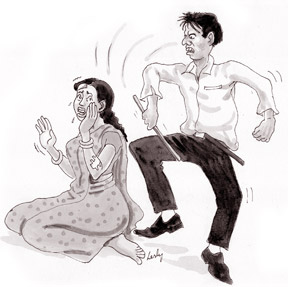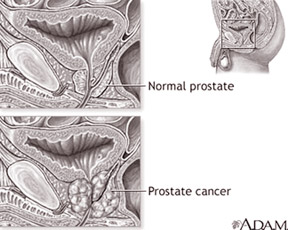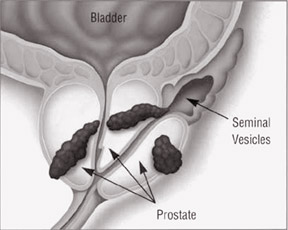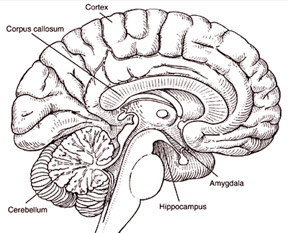Health Watch
Domestic violence and health-related complications
Nadira Gunatilleke
This is everywhere but hardly anyone talks about it. The victims
never speak about it and always try to hide it. Others just do not see
it and never notice it even if they come across it.
|

Facing abuse from all over |
As a result of being subjected to violence, women face numerous
health related complications. Today we are going to talk about it openly
because it happens at your home, takes away your money, mental health
and physical health of your whole family. Even your family pet cannot
escape from it.
According to the Health Education Bureau of Sri Lanka, violence
against women and health-related complications arising from it, has
become one of the major public health issues all over the world today.
Violence against women causes physical and psychological ill health in
women. If you compare an ordinary female patient with another who has
undergone physical abuse, you can clearly notice that the latter is less
healthy and lacks energy. Their health condition is worse than that of
other female patients and develops various illnesses.
When it comes to pregnancy we come across even worse situations.
Women who undergo violence get more infections in the vagina and
crevice. They will tend to bleed easily during their pregnancy. Still,
premature or underweight babies are born to women who undergo abuse and
violence. Sexually abused women discharge blood during their pregnancy
and get severe vaginal pain. Such women also get severe pain during
menstruation and many other reproductive system diseases. She suffers
from long term lower abdominal pain.
Sexual abuse and violence against women is one of the main reasons
for her ill health and weakness. She may also face unwanted pregnancy,
diseases such as HIV and other STDs.
According to world statistics, one in every three women undergoes
sexual abuse and violence imposed on her by her husband/partner. Many
women commit suicide when it becomes unbearable and some women who bear
it or fight against it are killed by their husbands/partners all over
the world.
 Health Education Bureau statistics says that in Sri Lanka, women from
all parts of the country, social backgrounds and all ethnicities undergo
violence. Most women who experience such violence belong to the age
group of 20 to 44. They have either been abused by their own husbands,
relations, family members and even neighours or males who are close to
them. Around 34.4 percent of women face physical violence throughout
their lives at least once in their life. The possibility of undergoing
sever abuse during the lifetime is 19.8 percent. Gender based violence
causes many other serious health problems for women. Health Education Bureau statistics says that in Sri Lanka, women from
all parts of the country, social backgrounds and all ethnicities undergo
violence. Most women who experience such violence belong to the age
group of 20 to 44. They have either been abused by their own husbands,
relations, family members and even neighours or males who are close to
them. Around 34.4 percent of women face physical violence throughout
their lives at least once in their life. The possibility of undergoing
sever abuse during the lifetime is 19.8 percent. Gender based violence
causes many other serious health problems for women.
Some of them are fatal and some serious but not fatal. Some of the
fatal problems are suicide, maternal deaths and AIDS while the non fatal
but serious health problems can be chronic pain, intestinal problems,
memory loss and changes in memory.
Apart from those problems, gender based violence leads to addiction
to smoking and other drugs, risky sexual behaviors, physical inactivity
caused by mental pressure and abnormalities in food habits. Such women
also face mental sicknesses such as PTSD, depression, anxiety or
phobia/panic disorders.
When it comes to violence against women, we can always see injuries,
internal bleeding and other damages to internal organs, becoming
permanently disabled, weak health, inability to perform daily tasks and
dizziness. Women who undergo violence and abuse turn up in hospitals
only when they are unable to bear the pain and perform their duties. But
even when they turn up in hospitals they never say that they were abused
by a male.
If the mother of the family gets mentally or physically affected, the
whole family especially the children get affected too.
There is one way out from this problem. There is no point forcing Sri
Lankan women to speak against their husbands/partners, because they will
never do it. They cannot call them culprits and go back to their
husband’s home and stay with him without fearing for their life.
Therefore, we need another practical effective system to stop this chain
of violence against women’s mental and physical health.
Accurate diagnosis can be done and make it compulsory. When the same
woman turns up in the same hospital for the same type of cuts, bruises
and injuries often, there should be a system to track her down and
follow the case.
According to the Health Ministry statistics, many women who have
faced violence, turn up at the Colombo General Hospital stating
something else and obtain medical treatment.
Women represent over 52 percent of the total population of the
country and many of them are mothers. Therefore, it is all about the
population’s health – not just violence against women.
How to eradicate the Dengue menace
According to print and the electronic media the dengue menace is
raising its ugly head once again in our country.
There has been a large number of dengue patients in Colombo, its
suburbs as well as in outstation areas according to the same reports
there has also been a large number of deaths as well.
The Authorities concerned put the blame on th General Public for this
menace without thinking of some permanent remedial measures to put an
end to this menace once and for all. Therefore, I propose the following
measures to the Health Ministry for their immediate consideration.
1. The responsibility for this menace should be vested in the hands
of every local authority.
2. A PHI from that local authority should visit every household at
least once in two weeks without giving prior notice and examine the
compounds to see that the owner or the tenant maintains a garbage free
compound or garden. If not, the PHI should impose a penalty of Rs 5,000
initially on the spot irrespective of his/her position and party
politics.
3. To avoid PHI resorting to bribes from the householder the Health
Ministry/local authority should consider paying the PHI a reasonable
percentage of such monies collected as penalties.
4. In every local authority I presume there is a MOH office as well
as a team of PHIS and they possess motorcycles for travelling. I am at a
loss to understand what duties are entrusted to them.
5. They never visit any household to examine the cleanliness, of
their own. Only if some one makes a complaint to MOH office, then we get
a PHI immediately for supervision. If the complaint is regarding
accumulation of garbage in the neighborhood, he will take a negative
attitude saying that it is a matter for the Development Council and goes
off. When we inform the Development Council of the area it takes a few
months to remove it. This is the current situation in this country.
6. Finally I would say if dengue is to be eradicated in this country,
there should be strict rules and regulations and they should apply to
all who maintain unhealthy surroundings irrespective of political
attachment.
D.E. Abeyweera Kelaniya.
New drug extends survival for men with advanced prostate cancer
Steven Reinberg
For men with advanced hormone-resistant prostate cancer who have also
failed chemotherapy, the new drug Zytiga (abiraterone acetate) along
with the steroid prednisone appears to boost survival, researchers
report.
|

What prostate cancer looks like |
Based on data from the ongoing clinical trial, Zytiga was approved by
the US Food and Drug Administration in April. It works by inhibiting the
production of the male hormone testosterone, which promotes the growth
of cancer cells. In this regard, the drug mimics hormone therapy.
Zytiga “prolonged overall survival in this patient population that
had extremely limited therapeutic options after chemotherapy,”
Notre-Dame Hospital in Montreal Chief of Urology lead researcher Dr.
Fred Saad said during a Monday morning press conference.
Men taking the drug combination had an average survival of 14.8
months, compared with 10.9 months for men taking a placebo.
“Abiraterone represents a valuable treatment option for patients with
metastatic, castration (hormone)-resistant prostate cancer who had been
treated previously with chemotherapy, with very manageable
treatment-related toxicity,” Saad said.
The study was published in the May 26 issue of the New England
Journal of Medicine. The findings had also been presented May 16 at the
American Urological Association’s annual meeting, in Washington DC. The
study included 1,195 men with prostate cancer who did not respond to
hormone therapy and had failed earlier chemotherapy. The researchers,
from 147 hospitals across 13 countries, randomly assigned the men to
take Zytiga plus prednisone or a placebo.
|

Stage 3 of the cancer |
The drug combination was well tolerated and resulted in less fatigue,
back pain and spinal compression among the men taking it, compared with
the placebo, Saad said.
The most common side effects among those taking Zytiga and prednisone
were lower levels of white blood cells, fluid retention, low potassium
levels, abnormal liver function tests, high blood pressure and heart
problems, the researchers noted.
A one-month supply of 120 pills of Zytiga costs $5,000, said Kelly
McLaughlin, a spokeswoman for Centocor Ortho Biotech Inc., the drug’s
maker and a sponsor of the study.
“This study tells us that there is a form of hormonal therapy and
abiraterone that works in people who had standard hormonal therapy and
chemotherapy,” Brigham and Women’s Hospital in Boston Chief of
Genitourinary Radiation Oncology prostate cancer expert Dr. Anthony
D’Amico said.
“It will provide people with late-stage disease with an opportunity
for an extended survival that they didn’t have before. I can’t say it’s
a home run because it’s only a few months improvement,” he added.
HealthDay News
Cancer blood cell level linked to survival: study
The number of cancer cells that have broken off from the tumor and
reached the blood stream affects the survival rate of patients suffering
from advanced stages of prostate cancer, according to a study unveiled
here. One of the problems preventing progress in the fight against
cancer is identification of reliable early indicators that may signal
whether a treatment can prolong the life of a patient, explained Dr.
Howard Scher, a leading cancer researcher from Memorial Sloan-Kettering
Cancer Center in New York and the lead author of the study.
AFP
Being ‘born-again’ linked to more brain atrophy
Older adults who say they’ve had a life-changing religious experience
are more likely to have a greater decrease in size of the hippocampus,
the part of the brain critical to learning and memory, new research
finds.
According to the study, people who said they were a ‘born-again’
Protestant or Catholic, or conversely, those who had no religious
affiliation, had more hippocampal shrinkage (or ‘atrophy’) compared to
people who identified themselves as Protestants, but not born-again.
 The study is published online in PLoS ONE. The study is published online in PLoS ONE.
As people age, a certain amount of brain atrophy is expected.
Shrinkage of the hippocampus is also associated with depression,
dementia and Alzheimer’s disease.
In the study, researchers asked 268 people aged 58 to 84 about their
religious affiliation, spiritual practices and life-changing religious
experiences.
Over the course of two to eight years, changes to the hippocampus
were monitored using MRI scans.
The researchers suggested that stress over holding religious beliefs
that fall outside of the mainstream may help explain the findings.
“One interpretation of our finding - that members of majority
religious groups seem to have less atrophy compared with minority
religious groups - is that when you feel your beliefs and values are
somewhat at odds with those of society as a whole, it may contribute to
long-term stress that could have implications for the brain,” Duke
University Medical Center study and a research associate lead author Amy
Owen, said in a Duke news release.
The study authors also suggested that life-changing religious
experiences could challenge a person’s established religious beliefs,
triggering stress.
“Other studies have led us to think that whether a new experience you
consider spiritual is interpreted as comforting or stressful may depend
on whether or not it fits in with your existing religious beliefs and
those of the people around you,” Duke University Medical Center research
associate David Hayward added.
“Especially for older adults, these unexpected new experiences may
lead to doubts about long-held religious beliefs, or to disagreements
with friends and family.”
The researchers noted other factors related to hippocampal atrophy,
such as age, depression or brain size, as well as other religious
factors such as prayer or meditation, could not explain the study’s
findings.
HealthDay News |



